-
May 19, 1798
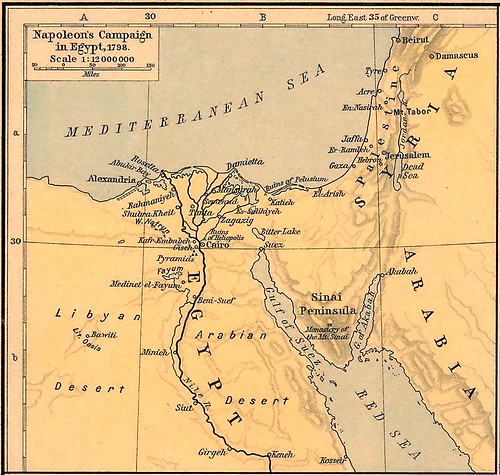 A French armada of 335 ships carrying nearly 40,000 men set sail for Alexandria, Egypt, which Napoleon plans to conquer
A French armada of 335 ships carrying nearly 40,000 men set sail for Alexandria, Egypt, which Napoleon plans to conquer -
July 1, 1798
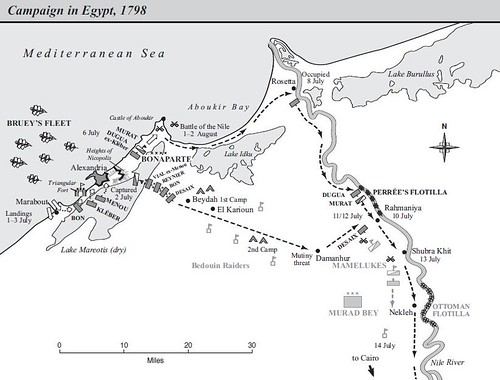 Shortly after disembarkment at Alexandria forces of Napoleon Bonaparte break into the city of Alexandria in Egypt and takes it
Shortly after disembarkment at Alexandria forces of Napoleon Bonaparte break into the city of Alexandria in Egypt and takes it -
July 21, 1798
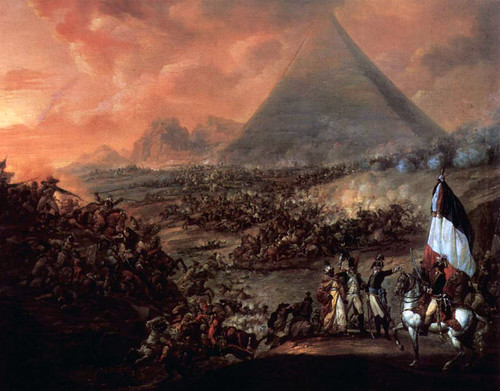 Napoleon Bonaparte defeats Murad Bey and his Mameluke warriors on the outskirts of Cairo at the Battle of the Pyramids ending 700 years of Mamluk rule in Egypt
Napoleon Bonaparte defeats Murad Bey and his Mameluke warriors on the outskirts of Cairo at the Battle of the Pyramids ending 700 years of Mamluk rule in Egypt -
August 1, 1798
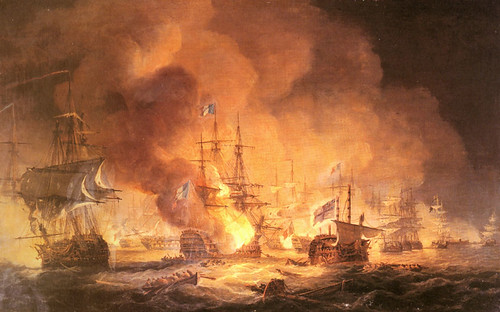 Admiral Horatio Nelson's fleet of 14 ships routes the French fleet capturing six and destroying seven of the 17 French vessels in the Battle of the Nile at Aboukir Bay, Egypt
Admiral Horatio Nelson's fleet of 14 ships routes the French fleet capturing six and destroying seven of the 17 French vessels in the Battle of the Nile at Aboukir Bay, Egypt -
February 10, 1799Napoleon Bonaparte left Cairo for Syria, at the head of 13,000 men, to avoid defend against the Ottoman army and to attack them
-
March 7, 1799
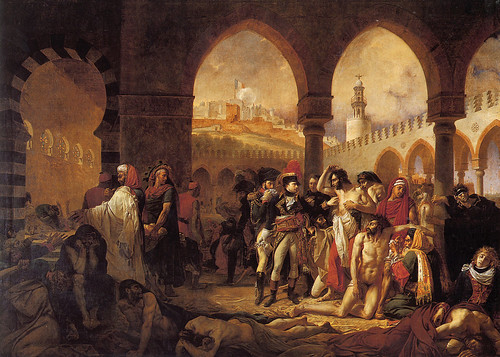 Napoleon Bonaparte captures the Turkish citadel at Jaffa, Palestine and orders the massacre of thousands of imprisoned Muslim soldiers claiming that he could not feed them
Napoleon Bonaparte captures the Turkish citadel at Jaffa, Palestine and orders the massacre of thousands of imprisoned Muslim soldiers claiming that he could not feed them -
March 20, 1799
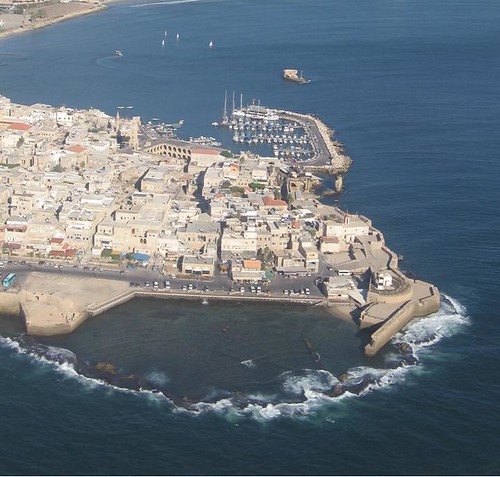 Napoleon Bonaparte begins the siege of Acre defended by Turks, which becomes the turning point of Napoleon's invasion of Egypt and Syria
Napoleon Bonaparte begins the siege of Acre defended by Turks, which becomes the turning point of Napoleon's invasion of Egypt and Syria -
May 20, 1799
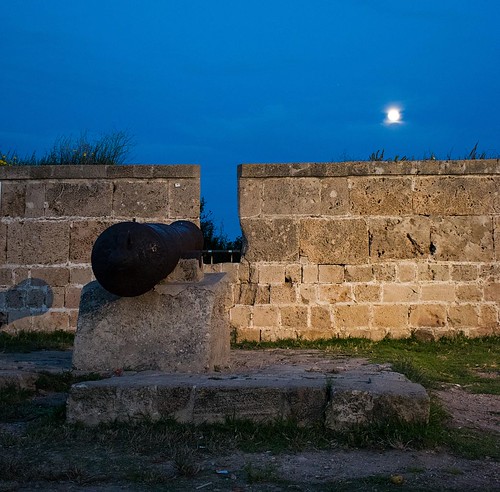 Napoleon Bonaparte orders a withdrawal from his siege of city of Acre in Ottoman Empire due to plague which run through besieging French forces
Napoleon Bonaparte orders a withdrawal from his siege of city of Acre in Ottoman Empire due to plague which run through besieging French forces -
1799, July
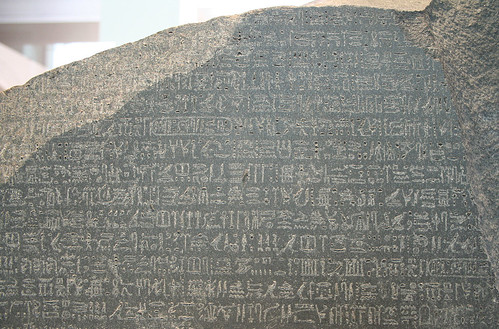 Pierre-François Bouchard, a soldier of the Napoleonic expedition to Egypt, discovers Rosetta Stone, a black basalt stone with three texts: the upper one is Ancient Egyptian hieroglyphs, the middle portion Demotic script, and the lowest Ancient Greek
Pierre-François Bouchard, a soldier of the Napoleonic expedition to Egypt, discovers Rosetta Stone, a black basalt stone with three texts: the upper one is Ancient Egyptian hieroglyphs, the middle portion Demotic script, and the lowest Ancient Greek -
July 25, 1799
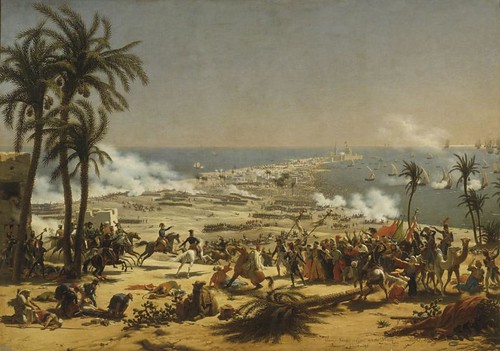 On his way back from Syria, Napoleon Bonaparte defeat superior Ottoman forces at Battle of Abukir, which temporarily secures French control over Egypt and makes Napoleon more popular in France
On his way back from Syria, Napoleon Bonaparte defeat superior Ottoman forces at Battle of Abukir, which temporarily secures French control over Egypt and makes Napoleon more popular in France -
October 7, 1799
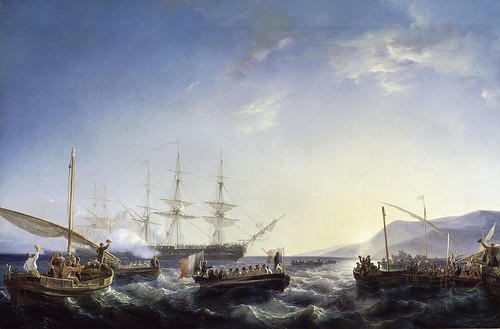 Napoleon returns to France and lands at Saint Raphael, 50 kilometers east of Toulon after his campaign in Egypt and Syria
Napoleon returns to France and lands at Saint Raphael, 50 kilometers east of Toulon after his campaign in Egypt and Syria -
March 8, 1801
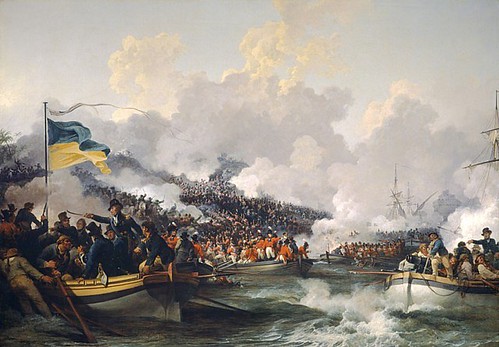 British defeat French at the Second Battle of Abukir driving them out from Abukir
British defeat French at the Second Battle of Abukir driving them out from Abukir -
September 2, 1801
 French garrison at Alexandria surrender to the British after the siege of Alexandria, the last action of the Egyptian Campaign, and are forced to leave Egypt on British ships
French garrison at Alexandria surrender to the British after the siege of Alexandria, the last action of the Egyptian Campaign, and are forced to leave Egypt on British ships
Thursday, April 5, 2018
French campaign in Egypt and Syria
Saturday, January 20, 2018
Year 1717
-
January 4, 1717
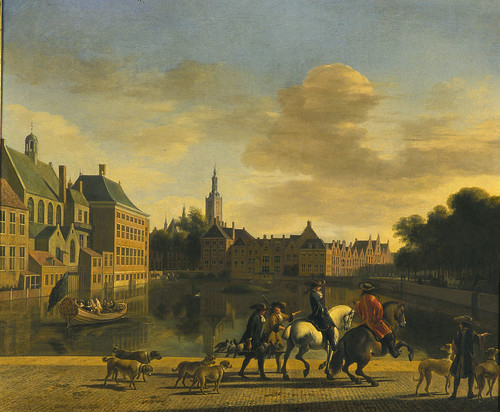 The Netherlands, Britain and France sign the Triple Alliance in the Hague to prevent Spain to become a superpower in Europe
The Netherlands, Britain and France sign the Triple Alliance in the Hague to prevent Spain to become a superpower in Europe -
1717
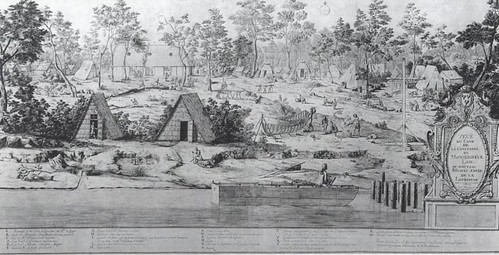 In France John Law proposes a company with exclusive rights to trade with and exploit the resources of the Mississippi territory and to pay down the government's debt from company profits, which becomes the Company of the West
In France John Law proposes a company with exclusive rights to trade with and exploit the resources of the Mississippi territory and to pay down the government's debt from company profits, which becomes the Company of the West -
April 26, 1717
 Black Samuel Bellamy, the wealthiest pirate in recorded history, dies at the age of 27 along with 143 others when their ship, the Whydah, sank off of Wellfleet, Cape Cod, sending over 4.1 tonnes of silver and gold to the ocean floor
Black Samuel Bellamy, the wealthiest pirate in recorded history, dies at the age of 27 along with 143 others when their ship, the Whydah, sank off of Wellfleet, Cape Cod, sending over 4.1 tonnes of silver and gold to the ocean floor -
June 4, 1717
 The Freemasons, who begun in the 13th century as a guild of masons, establish their Grand Lodge in London, the oldest Grand Lodge in the world
The Freemasons, who begun in the 13th century as a guild of masons, establish their Grand Lodge in London, the oldest Grand Lodge in the world -
August 22, 1717
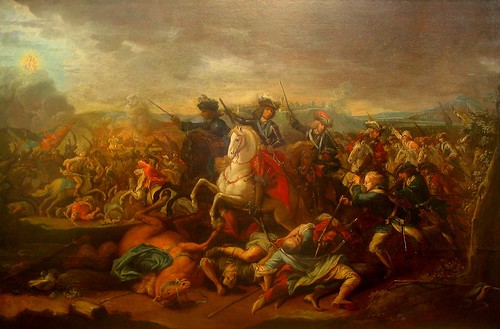 The Austrian army under Eugene of Savoy force the Turkish army out of Belgrade, ending the Turkish revival in the Balkans
The Austrian army under Eugene of Savoy force the Turkish army out of Belgrade, ending the Turkish revival in the Balkans -
1717The Mississippi Scheme, an attempt to hold a business monopoly in French colonies in North America and the West Indies, leads to increased settlement in Louisiana
-
1717
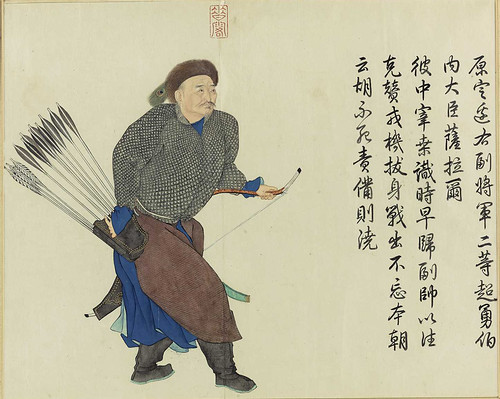 Dzungar tribes of Mongolia invade Tibet starting a period of internal strife and civil war
Dzungar tribes of Mongolia invade Tibet starting a period of internal strife and civil war -
1717
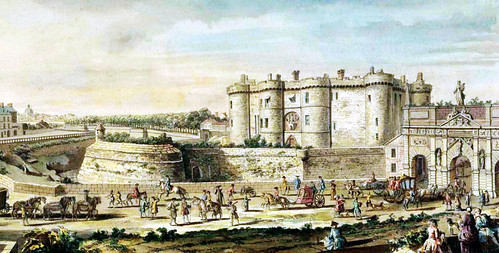 Voltaire, a French Enlightenment writer, is imprisoned in the Bastille, a fortress in Paris used as a state prison by the kings of France, for criticizing the French aristocracy
Voltaire, a French Enlightenment writer, is imprisoned in the Bastille, a fortress in Paris used as a state prison by the kings of France, for criticizing the French aristocracy -
December 25, 1717
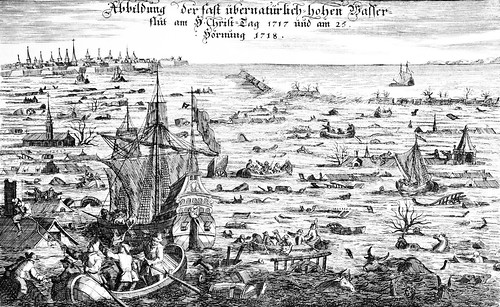 A northwesterly storm, which hit the coast area of the Netherlands, Germany and Scandinavia, results in approximately 14,000 drowned people
A northwesterly storm, which hit the coast area of the Netherlands, Germany and Scandinavia, results in approximately 14,000 drowned people
Tuesday, January 2, 2018
Fyodor Pirotsky
-
February 17, 1845
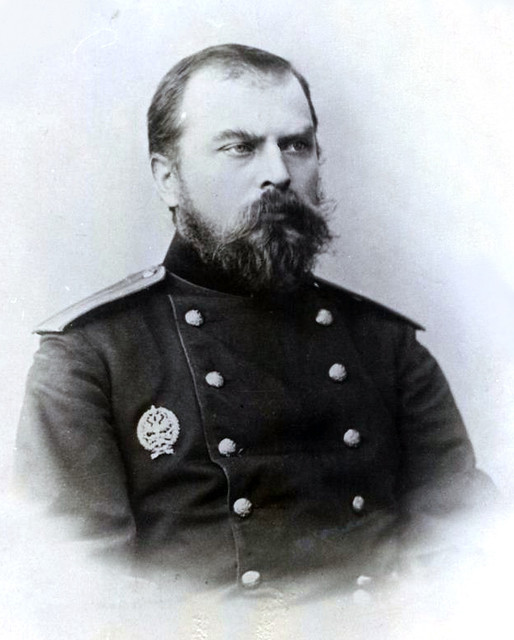 Fyodor Apollonovich Pirotsky, a Ukrainian-born inventor and engineer, is born in family of Ukrainian Cossacks ancestry in Lokhvytsia Uezd of Poltava Gubernia, modern-day Ukraine
Fyodor Apollonovich Pirotsky, a Ukrainian-born inventor and engineer, is born in family of Ukrainian Cossacks ancestry in Lokhvytsia Uezd of Poltava Gubernia, modern-day Ukraine -
1871Russian engineer Fyodor Pirotsky develops a new type of blast furnace
-
February 17, 1875
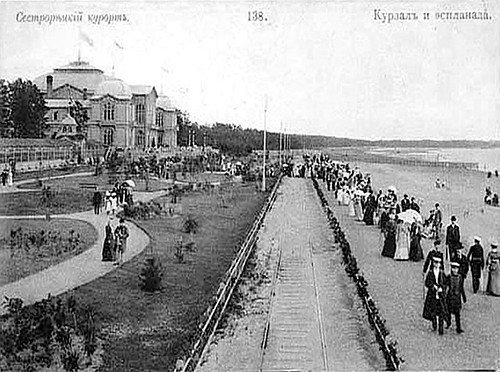 Fyodor Pirotsky puts electrically powered railway cars running on isolated from the ground and working as conductors rails on the Sestroretsks railway Miller's line in Russian Empire
Fyodor Pirotsky puts electrically powered railway cars running on isolated from the ground and working as conductors rails on the Sestroretsks railway Miller's line in Russian Empire -
May 16, 1881
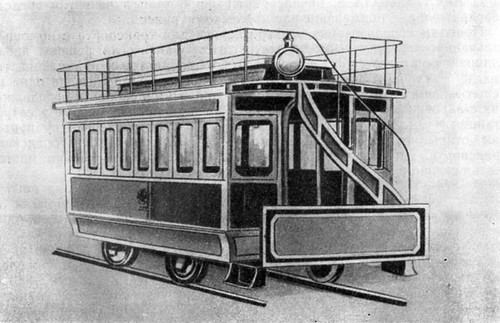 World's first electric tram, invented and made of two-decker horse tramway by Ukrainian-born Russian engineer Fyodor Pirotsky, goes into service in Saint Petersburg, Russia
World's first electric tram, invented and made of two-decker horse tramway by Ukrainian-born Russian engineer Fyodor Pirotsky, goes into service in Saint Petersburg, Russia -
1881
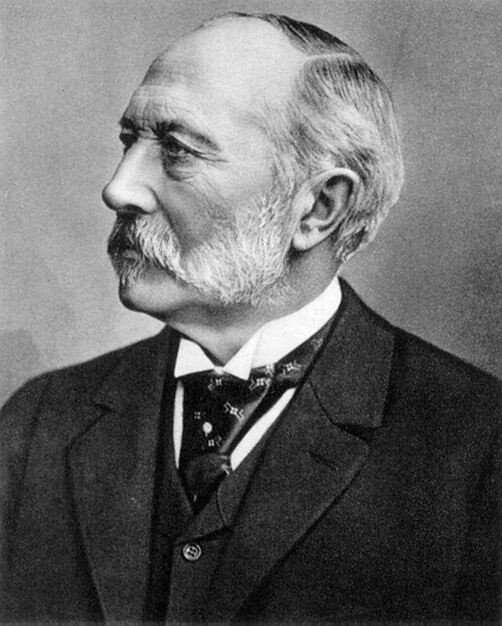 Fyodor Pirotsky meets with German entrepreneur Carl Heinrich von Siemens to discuss regular electric transportation
Fyodor Pirotsky meets with German entrepreneur Carl Heinrich von Siemens to discuss regular electric transportation -
February 28, 1898Fyodor Pirotsky, inventor of the world's first electric tram, dies in poverty and is buried on a credit secured by the furniture in the town of Aleshki, now Ukraine
Labels:
Births,
Electricity,
Fyodor Pirotsky,
Inventions,
Lokhvytsia,
Miller's Line,
Rail Transport,
Railway,
Russian Empire,
Saint Petersburg,
Science and Technologies,
Sestroretsk,
Tram,
Transport,
Tsiurupynsk
Subscribe to:
Posts (Atom)